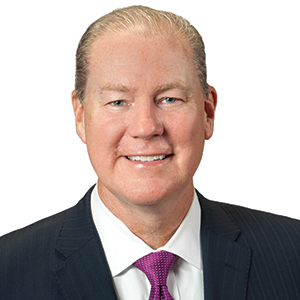Ten years ago, we launched Citymark Capital as a startup real estate private equity company based in Cleveland. Our basic business model is to raise institutional investor capital (insurance companies, pension funds, foundations) in closed-end funds to invest in apartments across the U.S.
The odds of a startup surviving 10 years is less than 50 percent, according to the U.S. Bureau of Labor Statistics. Fortunately, thanks to the support of our investors, our terrific advisory board and talented Citymark colleagues, we have beaten those odds. But it hasn’t been easy.
Even the best business strategy requires resilience and a lot of luck to survive. In 2015, we began raising our first fund and, like a first-time job applicant who employers won’t hire because of “lack of experience,” we received tons of rejections from institutional investors who said they don’t invest in “first-time funds” despite my prior track record helping build a successful real estate private equity investment program while at KeyBank.
Fast forward to October 2024, while attending the Rock and Roll Hall of Fame inductions, I found myself in a conversation with retired Medical Mutual CEO and fellow Rock Hall board member, Rick Chiricosta. Reflecting on Citymark’s launch 10 years ago, I vividly recalled receiving a game-changing phone call from Medical Mutual in 2015, committing capital to our first fund, putting Citymark on a path to success. As I shared this fond memory with Rick last month, he stressed how important it was to him as a Cleveland business leader to support new companies like Citymark. Strong leadership like Rick’s is critically important to maintaining a robust startup culture craved by Cleveland’s economic development ecosystem.
With our first institutional investor onboard, others soon followed suit, such as Westfield Insurance, Eaton Corporation and many others, but it takes that first one to get the ball rolling. What I learned during that startup phase (and is still true today) is that there’s a lack of predictability about investor decision making that requires a complete commitment to your business plan and resilience to keep going in the face of constant rejection.
While I wasn’t surprised that Rick and Medical Mutual believed in Citymark’s strategy and ability to execute, some investors who we were confident would commit, didn’t, and many who we didn’t expect to invest, did. It’s a good life lesson to “hang in there” that continues to be reinforced as we continue to grow the company.
While we were hard at work cultivating investors for our funds, it has been equally important to build a team of talented colleagues who believe in the vision of our startup company. We have been fortunate to attract teammates who have helped execute on that vision over the past decade and I’m grateful to everyone who has been part of our growth.
Since our early days, we have expanded with colleagues in New York and Philadelphia and recently struck a joint venture with Prudential Global Investment Management (PGIM) Real Estate. We are grateful for our PGIM partnership as it serves as a significant endorsement of what Citymark has become from those days as a first-time fund.
The fund management business is still extremely competitive. Some have told us it would have been easier to start the company in New York, Chicago or San Francisco, but I’m grateful that we’ve built it here in Cleveland and remain a cheerleader for others to follow their dreams to start businesses here.
Daniel Walsh is Founder & CEO of Citymark Capital

